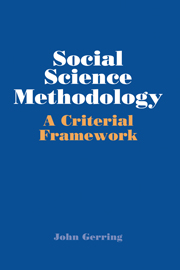1 - The Problem of Unity Amid Diversity
Published online by Cambridge University Press: 05 June 2012
Summary
One of the chief practical obstacles to the development of social inquiry is the existing division of social phenomena into a number of compartmentalized and supposedly independent non-interacting fields.
–John DeweyThe social sciences today are divided. They are divided, first of all, among the separate disciplines – anthropology, economics, history, political science, psychology, and sociology. Although scholars occasionally cross these borders, such crossings are arduous and often problematic. It is no surprise that for the most part, anthropologists associate with other anthropologists, and economists with other economists. Whether sustained by methodological differences, organizational incentives, or simple inertia, members of the different scholarly tribes tend to stick to their own kind.
The social sciences are divided, second, among subdisciplinary fields. The American Political Science Association recognizes thirty-four sections, the American Historical Association over one hundred, and the American Economics Association several hundred (depending on how one counts the affiliation categories). Similar divisions may be found in other disciplines. These cubbyholes define courses, jobs, conferences, journals, and scholarly activity generally. They are the de facto boundaries of most academic lives.
The social sciences are divided, third, among those who are comfortable with statistical analysis and mathematical models, and those who prefer the time-honored expedient of natural language. This division, in evidence for well over a century, continues to provoke and offend. As the reader is no doubt aware, quantoids and qualtoids have developed different languages and different approaches to their topics.
Information
- Type
- Chapter
- Information
- Social Science MethodologyA Criterial Framework, pp. 1 - 18Publisher: Cambridge University PressPrint publication year: 2001
